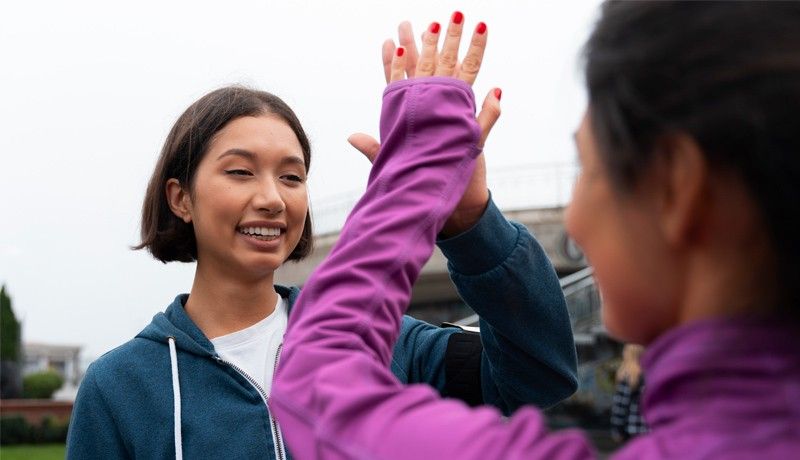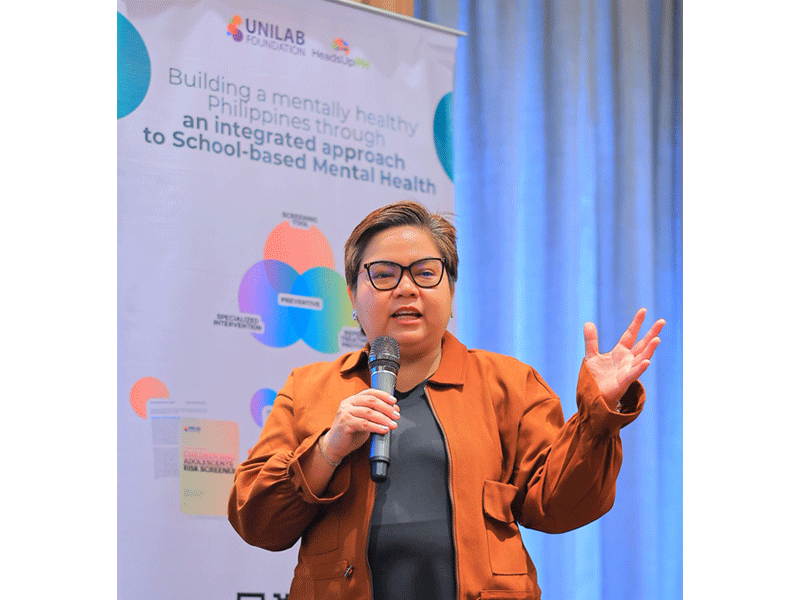Filipino youth and mental health – are we listening enough? Heads Up PH advocates for awareness, support

MANILA, Philippines — Broader and more open discussions on mental health remain a challenge in the Philippines despite the seemingly steady progression in recognizing, accepting and understanding mental illnesses, as well as the passing of the Mental Health Law in 2018 and continuous creation of succeeding legislations.
For the Filipino youth in particular, their desire for attention, understanding and openness about their mental health is still wanting. As a result, cases of mental health problems continue to persist and worsen among the youth. As we observe the National Mental Health Month this month, it’s high time to stop for a while, slow down and listen.
Mental health landscape among the youth
According to the World Health Organization, depression and anxiety are among the leading causes of illness and disability among adolescents, and suicide is among the leading causes of death in people aged 15 to 19 years old.
Data from the Department of Education (DepEd) for SY 2021-2022 highlighted that there were 404 recorded student suicides and over 2,100 suicide attempts.
Meanwhile, the 2021 Young Adult Fertility and Sexuality Study by the University of the Philippines Population Institute found that 62% of the Filipino youth who thought about suicide did not reach out for help, and only 2% of those who attempted suicide sought professional support.
Add to this, the number of registered mental health professionals in the Philippines is relatively low compared to other countries. It currently has 5,085 registered guidance counselors, 2,417 registered psychologists, and 651 registered psychiatrists. These numbers are not enough to accommodate the growing population of the country.
“In the Philippine public school system, there is only one guidance counselor serving 25,000 students,” says Dr. Sheila Marie Hocson, RGC, RPSy, RPm, LPT, and principal resource person for Heads Up PH, a program of Unilab Foundation.

Aside from not having enough guidance counselors, psychologists, psychiatrists and developmental pediatricians, she adds that access to private mental health services is expensive, adding to the troubling landscape of mental health in the Philippines.
Causes of the rising mental health concerns among students include the challenges brought by the COVID-19 pandemic, poverty, bullying, internet addiction, family, academic concerns, lack of mental health literacy, and the lack of interventions and available resources.
Breaking the stigma of mental health
Responding to this growing concern, Unilab Foundation has started scaling up its implementation of Heads Up PH, a mental health and well-being program aimed at supporting Filipino youth.
As part of its broader mission of building healthier communities, this initiative aims to create a nurturing environment where students can receive the help that they need. It also seeks to empower teachers and other school stakeholders to recognize signs of mental health challenges among students. By opening conversations on mental health in schools and communities, it encourages students to seek help without the fear of judgement.
Together with partners such as DepEd, the Department of Health, Commission on Higher Education (CHED), and mental health professionals and organizations, Heads Up PH implemented its comprehensive, evidence-based approach to tackling mental health issues in schools across the country.
The Race Against Suicide Toolkit is designed to equip gatekeepers for suicide prevention in schools, as a way to address the increasing cases of mental health concerns and suicidal tendencies.
The toolkit aims to help fill the gaps on the issue of scarcity of mental health professionals in the country, the limitations on service delivery, increased reliance on remote support, and disruptions in the continuation of mental health services.
Already been piloted in several schools around the country, it includes an assessment tool, a timely intervention, and a practical referral system that is implemented end to end.
“We aim to close the loop with a strategic approach, including access to medical health professionals. As soon as tendencies or risks are detected, appropriate interventions are in place. Through this, we can also advance the conversation on mental health and wellbeing, working with other stakeholders towards our shared advocacy,” says Unilab Foundation Program and Strategic Support Director Marie Joan Urieta.
“Some people are not informed of the signs, symptoms and tendencies for mental health concerns . . . There is also a lack of mental health literacy and help seeking behavior. Some people tend to be nervous and unprepared to handle cases of mental health tendencies. In some of the schools in the country, there are no accommodation policies, and a lack of awareness and access to mental health services. We seek to address these through Heads Up PH,” Hocson says.
In addition to the RACE Against Suicide, training on the use of a universal mental health screener for public schools called Child and Adolescent Risk Screener is being rolled out with DepEd.
The universal mental health screening is also a way to gather data on mental health among the youth, which can be a strong basis for priority setting, and policies that are data-driven and evidence-based.
Creating future-ready citizens
Through Heads Up PH, Unilab Foundation and its partners are working together to build a strong, healthy, future-ready citizenry.
“Heads Up PH is Unilab Foundation’s culture of bayanihan in practice, where we share our strengths and put them together for a unified, cohesive solution that sustainably addresses the situation. Building a healthy, resilient youth citizenry supports nation building and a strong society. In support of healthier communities, we want to bring together organizations and individuals to build mentally healthy schools and communities, one person at a time,” Urieta says.
Heads Up PH is already in collaboration with the Philippine Guidance and Counseling Association, DepEd-National Educators Academy of the Philippines (NEAP) and School Health Division, and partner private schools.
Moreover, it recently signed a Memorandum of Understanding with CHED for the Training of Trainers Program on suicide prevention and awareness in higher education institutions.
By working together with partners in the schools and communities and fostering the proper mindset when it comes to understanding and accepting mental health, the Unilab Foundation, through Heads Up PH, is hoping to create a future that values mental health not just for the Filipino youth but for all.
To know more about Unilab Foundation and Heads Up PH, visit www.unilabfoundation.org/heads-up-ph.
Editor’s Note: This #BrandSpace story is created with Unilab Foundation. It is produced by the Advertising Content Team that is independent from our Editorial Newsroom.




















